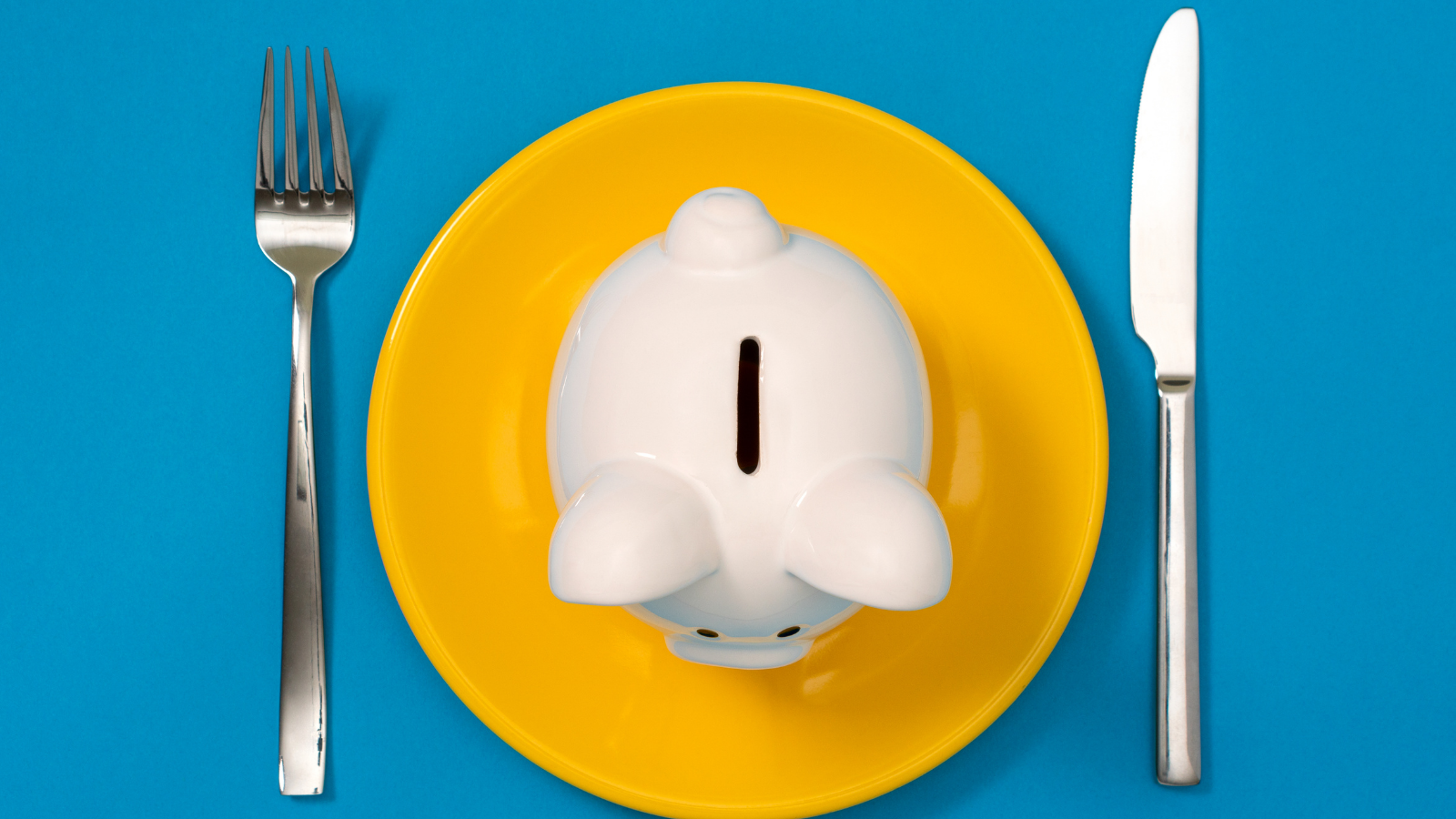Spending money on food is a major expense for most of today’s modern families. We’re busy and on to go and food is a necessity so we don’t get to opt out or put it off. So how do we keep our food budget from wrecking our entire budget?
The answer is having a plan and learning new frugal living habits so our food choices aren’t guided by the growling in our stomachs. Because the truth is, food for the average American is expensive and takes up a huge chunk of living expenses.
The average American spends $232 per month eating meals prepared outside the home. Given that there are 18.2 meals eaten outside the home in an average month by the average American, the average meal outside the home costs a person $12.75.
The Simple Dollar
To top it off, the above statistic is only referring to food prepared outside the home. Which is all takeout and dining meals. What about the average cost of groceries? The average cost of groceries for U.S. households is $4,643, based on 2019 data from the U.S. Bureau of Labor Statistics. This works out to about $387 per month.
To say the least, food costs can overtake a budget quickly and also rob you of your ability to build savings for your future goals.
Frugal Living Habits to Save on Food
Here are some very simple frugal living habits to help you save money on food so you can start saving for your future.

Start a Stockpile
When you can find an item for a great deal and you know that a) you’ll use in the future and b) it won’t expire for a long time, stock up on it.
Please note that I’m not talking about panic buying in a shortage. We’ve all seen this in action and it’s harmful to everyone. But during times of normal supply, it’s fine to buy more at the price.
Set up some shelves in your basement to keep overflow items in a cool place. An extra freezer can help you stockpile frozen food. And also get allow you to save more leftovers and in-season produce.
Shop Your Pantry for Meals
Keeping your pantry stocked with essentials like rice, pasta, beans, and canned sauces can make quick and “free” meals happen in mere minutes. Without running out to a drive-thru window.
Plan for a couple pantry meals a week and watch your food costs plumet!
Stop Wasting Your Produce
Have you ever had really great intentions and bought a bunch of fresh fruits and veggies only to see them all die and mold in your fridge days later? Yeah, we’ve all done it.
The typical reason this happens is we buy these healthy foods with intentions alone and no plan to use them.
If you’re going to buy a lot of fresh produce at once, try meal-prepping it all in one afternoon. For example, on a Saturday buy your food for the week and on Sunday chop, cook, and pack your food in containers to open and eat at your meal times throughout the week.
If you prefer to cook family meals, the same can be done by chopping and bagging your ingredients for each meal so it’s all ready when it’s time to cook.
Having food prepped and ready is an effective way to stop the temptation of eating out for convenience.
Try a Vegetarian Lifestyle
Meat is one of the most expensive grocery categories. You can make a large dent in your grocery bill by cutting down on your meat consumption. One way to do this is to replace meat with vegetable alternatives.
Vegetables are usually cheaper and are easier to transform when preparing a dish. If your family is reluctant to go without meat, try incorporating Meatless Mondays each week to cut down your costs and introduce new meatless dishes.
Plan Meals Around Grocery Sales
Many grocery stores produce sales fliers each week, highlighting what items are marked down. When you’re planning your grocery list, it helps to take a look at the circulars to see what’s on sale that week.
It’s a great idea to plan your week’s meals around what’s on sale. It’s also a good idea to stock up on certain items, such as canned or dried beans or frozen vegetables if they are a reasonable price one week.
Make Double When You Cook
Most meals can be easily doubled and used as leftovers or saved for another meal. The cost-saving part here is that you can save money by buying in bulk (for example, often ground beef gets cheaper the more you buy) and you have less waste if the recipe calls for something that needs ‘half a packet’.
Cooking double batches also means you have extras to use for lunches and can save you having to buy lunches at work.
There are so many ways to save money on food. And the important thing to note is that the money saved can go right into your actual savings. Overtime you’ll be amazed how much you saved.











